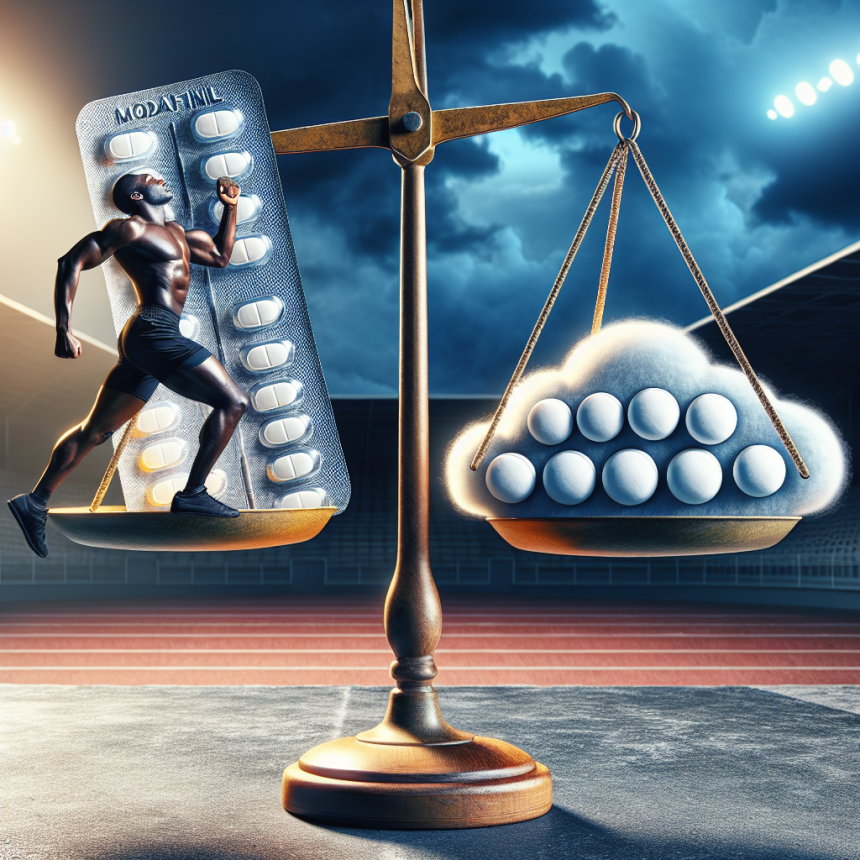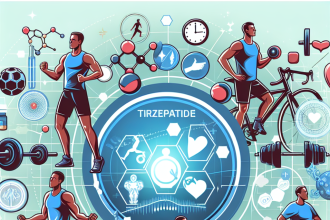-
Table of Contents
Modafinil (Provigil) and Sleep: Balancing Act for Athletes
In the world of sports, athletes are constantly seeking ways to improve their performance and gain a competitive edge. This drive has led to the use of various substances, including pharmacological agents, to enhance physical and mental abilities. One such substance that has gained popularity among athletes is modafinil, also known by its brand name Provigil. This wakefulness-promoting drug has been touted as a way to improve focus, alertness, and overall performance. However, as with any substance, there are potential risks and considerations to be aware of, especially when it comes to sleep and its impact on athletic performance.
The Pharmacology of Modafinil
Modafinil is a central nervous system stimulant that was originally developed to treat narcolepsy, a sleep disorder characterized by excessive daytime sleepiness and sudden attacks of sleep. It works by increasing the levels of certain neurotransmitters, such as dopamine and norepinephrine, in the brain, which are responsible for promoting wakefulness and alertness.
When taken orally, modafinil is rapidly absorbed and reaches peak plasma concentrations within 2-4 hours. It has a half-life of approximately 12-15 hours, meaning it stays in the body for a relatively long time. This is important to consider when using modafinil for athletic performance, as it can potentially affect sleep patterns and recovery.
The Impact of Modafinil on Sleep
One of the main concerns with using modafinil for athletic performance is its potential impact on sleep. As a wakefulness-promoting drug, it can disrupt the natural sleep-wake cycle and make it difficult to fall asleep. This can lead to sleep deprivation, which can have negative effects on physical and mental performance.
Studies have shown that modafinil can decrease total sleep time and increase wakefulness during the night, leading to a decrease in overall sleep quality. This can have a significant impact on an athlete’s ability to recover and perform at their best. In fact, a study by Faraut et al. (2012) found that sleep deprivation can lead to a decrease in athletic performance, including reduced reaction time, accuracy, and endurance.
Furthermore, modafinil can also affect the quality of sleep by reducing the amount of deep sleep, also known as slow-wave sleep. This stage of sleep is crucial for physical recovery and muscle repair, making it essential for athletes who engage in intense training and competition.
The Balancing Act for Athletes
So, how can athletes balance the potential benefits of modafinil with its impact on sleep? The key is to use it strategically and with caution. It is important to note that modafinil is not a substitute for proper sleep and should not be used as a way to compensate for inadequate rest.
One approach is to use modafinil only on days when an athlete needs to be at their peak performance, such as during a competition or a particularly demanding training session. This can help minimize the impact on sleep and allow for proper recovery on other days. It is also important to carefully time the administration of modafinil to avoid disrupting the natural sleep-wake cycle. For example, taking it early in the morning can help minimize its effects on sleep at night.
Another important consideration is the dosage of modafinil. Studies have shown that lower doses (100-200 mg) can still provide the desired effects on wakefulness and cognitive function, while minimizing the impact on sleep. It is important to consult with a healthcare professional before using modafinil to determine the appropriate dosage and timing for individual needs.
Real-World Examples
The use of modafinil in sports is not a new phenomenon. In fact, it has been reported that some athletes have been using it for years, including during the 2010 Winter Olympics. However, its use is not without controversy. In 2015, the World Anti-Doping Agency (WADA) added modafinil to its list of prohibited substances, citing its potential performance-enhancing effects and concerns about its impact on sleep.
Despite this, some athletes continue to use modafinil, often without disclosing it to their coaches or medical teams. This can be a dangerous practice, as it can lead to unintended consequences and potential health risks. It is important for athletes to be transparent about their use of any substances, including modafinil, to ensure their safety and well-being.
Expert Opinion
According to Dr. John Sullivan, a sports scientist and author of “The Brain Always Wins,” the use of modafinil in sports is a complex issue that requires careful consideration. He states, “While modafinil may provide short-term benefits in terms of focus and alertness, it can also have negative effects on sleep and overall performance. Athletes need to weigh the potential risks and benefits and use it strategically and responsibly.”
Conclusion
In conclusion, modafinil can be a useful tool for athletes looking to enhance their performance, but it must be used with caution and careful consideration. Its impact on sleep and recovery should not be overlooked, and athletes should prioritize proper rest and recovery as essential components of their training regimen. By using modafinil strategically and responsibly, athletes can find a balance between its potential benefits and its impact on sleep, ultimately leading to improved performance on and off the field.
References
Faraut, B., Nakib, S., Drogou, C., Elbaz, M., Sauvet, F., De Bandt, J. P., Léger, D., & Vergnoux, F. (2012). Napping reverses the salivary interleukin-6 and urinary norepinephrine changes induced by sleep restriction. Journal of Clinical Endocrinology & Metabolism, 97(11), E1896-E1900.
Sullivan, J. (2017). The Brain Always Wins: Improving Your Life Through Better Brain Management. Morgan James Publishing.




